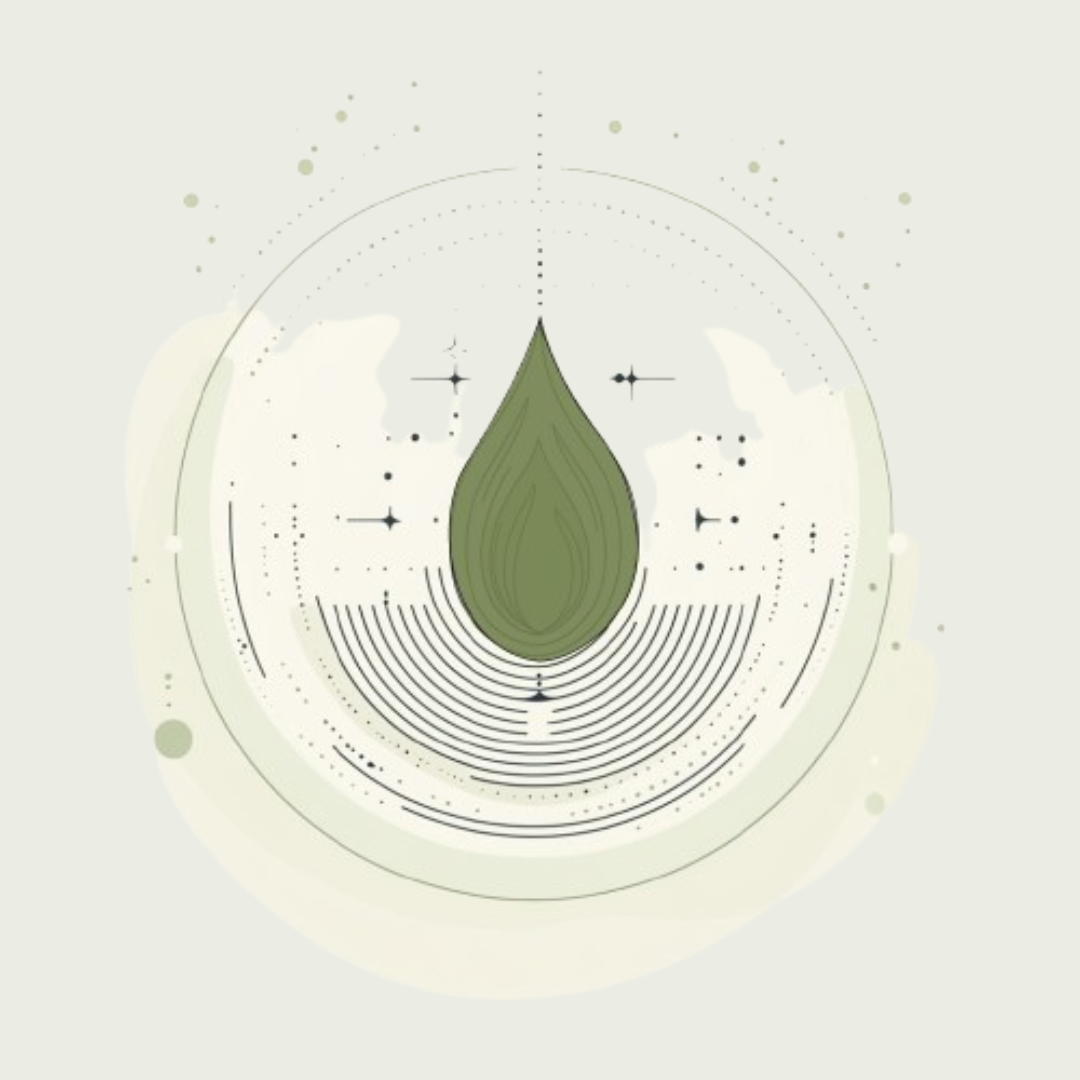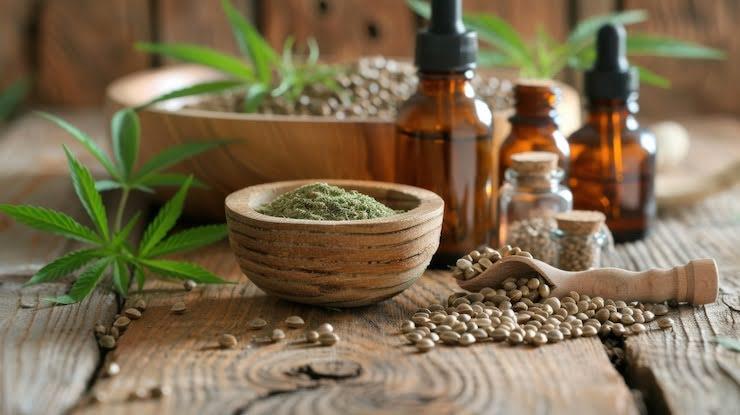Highlights
Modern medicine has saved millions of lives and is often the best choice in emergencies and severe illnesses. But sometimes, it comes with side effects and doesn't really get to the root of the problem. That’s where Ayurveda offers a different perspective.
Ayurveda looks at health as a whole. It's not just about treating symptoms but balancing the entire body and mind. We can reach a positive state by following ethical principles called Yamas (social restraints) and Niyamas (self-discipline). Ayurveda guides us to live by these principles, helping us care for ourselves and our relationships. When we improve our overall health this way, many ailments naturally fade without direct treatment.
Ayurveda helps keep you balanced on every level: body, mind, and soul. While modern medicine is essential and often lifesaving, it doesn’t always satisfy what your body and senses truly need. That’s when Ayurveda steps in as a gentle, natural solution.
Let’s discuss nine common health issues and how Ayurveda offers herbal alternatives to modern medicines.
1. Fever
Fever isn’t just one thing in Ayurveda. It’s divided into thirteen types like Vataja, Pittaja, Kaphaja, Vata-Pittaja, Vata-Kaphaja, Tridoshaja (intrinsic fevers), Agantuja (extrinsic fever), Krodhaja (anger induced), Kamaja (related to sex), Vishama jwara (malaria), Shokaja (anxiety induced), and Bhuta-vistha (of unknown origin), each caused by different factors. So, treatment varies depending on the type.
However, there are a few general rules that need to be followed for its treatment:
- Ayurveda suggests light eating or fasting at the start of a fever, but not if it’s a Vata-type fever because fasting might worsen it.
- Warm water is recommended to balance your stomach’s heat, except in Pitta fevers.
- For food, think simple, like barley, veggie soup, sago, and avoid anything astringent.
- Interestingly, antipyretic medicines (fever reducers) aren’t encouraged early on because they lower stomach heat, which is important for digestion. However, medications that are cooled without needing digestion are okay.
Ayurvedic remedies for fever
As mentioned in the classic Ayurvedic text Bhaisajya Ratnavali, one can take Sudarsana Tablets daily to treat fever. This natural medicine is effective for treating other types of fever as well.
Another formula for treating simple fever is a mixture of Vasaka leaf (Adhatoda vasica) and 10% Shukti Bhasma (oyster shell ash), taken in doses of 1-2 grams twice daily with warm water.
2. Memory
Losing memory as we age is a major concern. Ayurveda offers several ways to support and improve brain health.
In Ayurveda, the term Medhya refers to intellect and wisdom. Medhya herbs promote mental clarity, memory, and a vibrant mind. They also increase sattva, a quality of consciousness that steadies the mind.
Kerala Ayurveda’s Brahmi Pearls combine Tulsi, Brahmi, and Mandukaparni to boost memory and brain function.
Bitter herbs, known for their cooling and calming effects, help fight mental dullness. Key herbs include:
- Ashwagandha: Known as 'winter cherry,' it’s great for memory and strengthens your nervous system. It also fights fatigue and helps you bounce back.
- Calamus: This root is famous among herbalists for sharpening memory and boosting communication. You can use it as powder, paste, or oil.
- Brahmi/Gotu Kola: Also called Mandukaparni, it supports healthy aging, concentration, and meditation, plus it helps with memory and complexion.
- Bacopa (Water Hyssop): Helps with memory, mental energy, and stress relief, perfect for problem-solving.
- Shankhapushpi: Helps calm and clear your mind without making you dull. It’s often taken with ghee.
3. Eyecare
Ayurveda says all five elements govern our eyes — earth controls muscles, water the whites, fire the blood vessels, air the color, and space the tear ducts.
A special sub-dosha called Alochaka Pitta controls eye health but tends to get unbalanced as we age, so caring for your eyes is important.
Some Ayurvedic treatments act as a natural care for the eyes:
- Netra Tarpanam: Using lukewarm ghee or oil around the eyes to soothe dry eyes or computer vision strain. (Not for cataracts or infections.)
- Padabhyanga: Foot massage that stimulates pressure points linked to eye health, helping reduce tiredness.
- Nasyam: Administering medicine through the nose to reach parts of the brain controlling vision.
4. Cough
Dry coughs, especially from pollution and allergens, are super common these days. The body coughs to clear irritants, sometimes leading to sore throats and inflammation. Ayurveda calls this 'Vataja Kasa.' Other causes of dry cough are sinusitis, pneumonia, vomiting, and infection in the respiratory tract.
Here are some simple remedies you can try:
- Warm milk with turmeric and honey before bed.
- Licorice tablets to reduce inflammation.
- Aniseed decoction in coffee or tea.
- Chew a bit of ginger or mix honey and ginger syrup for cough relief.
- Cinnamon powder in warm water or tea soothes throat irritation.
- Basil leaves in tea or chewed for faster healing.
For stronger support, Kerala Ayurveda’s Tussnil Syrup combines herbs like Vasa, Kasamarda, Yashti, and Lavanga to help ease cough and respiratory discomfort quickly.
5. Cold
When you’re dealing with a cold, Ayurveda offers simple, natural ways to help your body recover and feel better faster:
- Drink warm water regularly: The Body absorbs warm water better than cold water. It also helps flush out ama, the toxins that can weaken your immune system, and keeps your mucous membranes hydrated. Try taking small sips every 10 to 15 minutes, especially when symptoms first appear.
- Take Astragalus supplements: Astragalus is known for boosting immunity quickly by activating immune cells within 24 hours. You can find it in drops or tablets. Just make sure to follow the recommended dosage and consult your doctor if you’re taking other medications to avoid any interactions.
- Follow a light, warm diet: While you’re sick, stick to simple, warm, and easy-to-digest foods like clear broths and seasonal veggies such as leeks, kale, and bok choy. Avoid heavy, raw, or hard-to-digest foods, as they can put extra strain on your digestive system.
- Gargle with salt water: This simple remedy helps loosen excess mucus and clears bacteria that cause sore throats. Regular saltwater gargling can soothe your throat and speed up recovery from cold and cough.
Since the Kapha Dosha tends to get active during colds and causes mucus buildup, inhaling ginger steam can also help. To do this, boil a teaspoon of fresh ginger in water, lean over the pot with a towel draped over your head to trap the steam, and breathe deeply through your nose. This helps clear your sinuses and ease congestion.
6. Menstrual Cramping
Menstrual pain can be rough, right? Although it’s a normal part of a woman’s life, at times, the pain and discomfort become so severe that going through a regular day becomes tough. Menstrual cramps or dysmenorrhea can bring sharp, dull, throbbing, burning, or shooting pain.
Ayurveda explains that Apana Vayu, a part of the Vata dosha in your lower belly, controls menstruation. It is located in the pelvic floor, and its energy passes through the lower abdomen region. Generally, the Apana Vayu flows downward and out, but cramps happen when it is blocked or disturbed.
The ayurvedic treatment for dysmenorrhea involves:
- Sweating and cleansing.
- Medicated enemas to clear blockages.
- Oil therapy and massage to relieve spasms and encourage normal flow.
One helpful treatment is Anuvasan Basti (Oil Enema), which helps normalize Vata flow. Another is Uttar Basti, where medicine is applied inside the uterus to clear channels and nourish it. Therapies like Virechan and Pichu are useful too.
7. Joint Pain
Joint pain and arthritis can be tough to deal with. While Ayurveda says it can't cure arthritis permanently, certain herbs can ease the pain and swelling:
- Nirgundi: Nirgundi is a well-known herb for joint pain relief. It reduces swelling and pain with anti-inflammatory and antioxidant effects. You can apply it as oil, paste, or drink the leaf decoction.
- Ajwain: Ajwain contains anti-inflammatory and anesthetic compounds that ease joint stiffness and pain, especially in colder months. Soaking joints in warm ajwain water or drinking ajwain water daily helps reduce swelling effectively.
- Dashmool: Dashmool, meaning 'ten roots,' is a blend of five tree roots and five shrub roots. It has powerful anti-inflammatory, antioxidant, analgesic, and sedative effects, making it great for treating joint inflammation and Vata imbalances.
- Shallaki: Shallaki, or Boswellia Serrata, is an effective Ayurvedic remedy found in Kerala Ayurveda’s KM Lepam. It reduces joint pain and swelling, supports healthy mobility, and is considered a natural alternative to modern painkillers.
- Eucalyptus: Eucalyptus oil, rich in tannins, is a popular herbal treatment for arthritis and joint pain. It reduces inflammation and swelling, and its aroma provides a calming effect on the mind, promoting relaxation.
- Ginger: Ginger improves blood circulation, bringing warmth and healing to painful joints. Drinking ginger tea or applying ginger paste and essential oil helps reduce swelling and alleviate joint discomfort naturally and effectively.
8. Headache
Headaches often come from imbalances in doshas caused by stress, poor diet, dehydration, or lack of rest. Vata blockage and pitta aggravation are common culprits.
Here are some Ayurvedic remedies that work:
- Ginger: Ginger is a popular cooking and medicinal herb valued for its healing properties. It treats respiratory and digestive issues and is effective in relieving headaches and soothing the body naturally.
- Ashwagandha: Ashwagandha, also called Indian ginseng, rejuvenates the mind and body. While not mainly a headache cure, it calms the root causes of headaches by reducing stress and revitalizing nervous system health.
- Feverfew: Feverfew, native to Europe, is less common but effective for severe headaches. It helps reduce the intensity and frequency of migraines and is valued for its strong anti-inflammatory effects.
9. Stress
Stress and depression happen when the mind and body struggle to keep up with life’s pressures. Ayurveda calls this a disorder of Rajas, which means restless activity and craving.
As these impulses, by their nature, are tough to satisfy, they tend to create a negative psychological disposition. To calm a stressed mind, herbs like Jatamansi, Ashwagandha, Sarpagandha, Vacha, Brahmi, and Shankpushpi are super helpful. They strengthen your nervous system so you can better handle tension.
- Jatamansi: It offers stability to brain functioning.
- Ashwagandha: It strengthens the brain as well as the nervous system.
- Sarpagandha: It helps in controlling blood pressure. It also induces proper sleep.
- Vacha: Vacha is a memory-enhancing herb. It enhances the ability of the mind to recall things.
Brahmi: Brahmi means 'God-like.' It vitalizes brain cells and has a calming effect on the nervous system.
Conclusion
Ayurveda offers a holistic approach that complements modern medicine by focusing on balancing body, mind, and soul. Its natural remedies support healing from within, addressing root causes and promoting long-term wellness. Following Ayurvedic principles alongside conventional care can lead to a healthier, more harmonious life where many ailments naturally diminish without harsh side effects.





